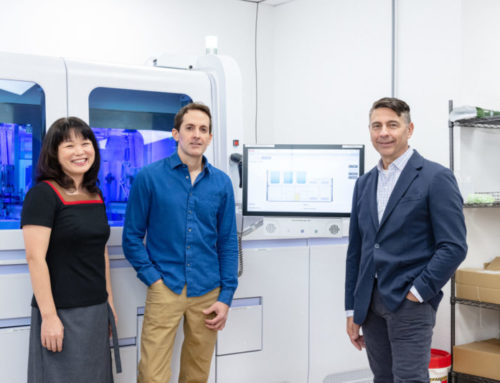
The Benefits of Pharmacogenetic Testing
Share:
In years past, determining the best medication for a patient was often reduced to a game of trial and error. Several factors — whether that’s age, lifestyle choices, dietary habits, or environmental influences — can impact how someone responds to a particular medication, so what works for one individual may cause debilitating side effects in another. When the wrong medication can lead to devastating health outcomes, it is critically important to know which medications patients will respond to best. This is where pharmacogenetic (PGx) testing can help. These tests scan patients’ genetic profiles for genes that may contribute to adverse responses to medications.
A patient’s genetic makeup is central to the efficacy of certain medications. As such, PGx testing is an invaluable tool for healthcare professionals when designing individualized treatment plans. For instance, it can help a physician identify medications that will be most effective — and avoid those that could lead to serious side effects — before the patient takes a single dose. PGx testing can also help guide physicians when they’re adjusting the dosage of medications.
The precision that PGx testing brings to medication therapy helps improve patient outcomes and mitigates adverse drug reactions. Here are three specific clinical implications of PGx testing.
PGx testing facilitates postoperative pain relief.
Under-managed postoperative pain can delay recovery and increase the risk of developing chronic pain. This fear of inadequate pain management prompts many patients, especially those who are opioid-dependent, to postpone necessary surgeries and procedures and exacerbate their underlying conditions.
Genetic variations in medication-metabolizing enzymes — variations that alter the way drugs are deactivated or activated in the body — can change the way medications alleviate pain and how intensely individuals perceive their pain.
The Pain Management pharmacogenetic panel helps to determine how well a medication will relieve a patient’s pain and whether that patient is at high risk for experiencing adverse side effects. Testing will also reveal any genetic abnormalities that could elevate a patient’s pain perception. Armed with this knowledge, physicians can provide patients with adequate postoperative pain relief and reduce the likelihood of adverse reactions.
PGx testing improves the efficacy of mental health medications.
Untreated depression can lead to declining physical health, increased healthcare costs, lost productivity at work, and, in the most extreme cases, suicide. However, finding an optimal treatment plan for depression is not a straightforward process.
Patients with depression or anxiety often have to test out various medications and adjust their doses to find what works best. Even when patients do find the right medication, symptom relief is not immediate. Patients must wait several weeks (or even months) before a new medication begins to take effect, and 10% to 30% of patients experience treatment-resistant depression.
For these reasons, patients who have taken antidepressant medications without symptom relief — or those who have a family history of poor response to these medications — could benefit from PGx testing. Most antidepressant medications have pharmacogenetic implications, and genetic variability plays a significant role in a patient’s response to them. The Mental Health panel on a Molecular™ pharmacogenetic testing report can significantly reduce the time it takes to find the appropriate treatment.
PGx testing promotes patients’ adherence to medications.
Because psychotropic medications are heavily associated with adverse side effects (e.g., weight gain, fatigue, suicidal thoughts), they have high rates of non-adherence. Genetic variations contribute to the degree to which patients experience these effects. A Mental Health pharmacogenetic panel can help physicians find medications that are less likely to cause unwanted side effects and produce the most satisfactory results. Subsequently, patients are more likely to take their medications as prescribed.
The primary technique used in Molecular™ pharmacogenetic testing involves real-time polymerase chain reaction (PCR) arrays, with confirmation testing using Sanger sequencing, if necessary. PCR remains one of the most robust methods for single nucleotide polymorphism (SNP) detection, and our proprietary process maximizes the number of detectable SNPs on any given PCR array. This approach allows us to maintain accuracy while keeping costs low for patients and clinical teams. It also enables our laboratory to perform a focused analysis, which excludes variants that do not contribute to an interpretation of results.
Implementing the findings from these tests reduces the likelihood of medication non-adherence and increases the chances of symptom improvement. Patients can benefit from a medication that works specifically for their genetic code and lifestyle.
Physicians should no longer need to rely on trial and error to find the best medication treatment plans for patients. Thankfully, pharmacogenetic testing is quickly becoming a cornerstone of precision medicine. Using this valuable tool, physicians can improve patient safety, reduce the likelihood of side effects, promote medication adherence, and improve the overall well-being of patients.
Molecular™ offers one of the most robust testing menus in the industry, and we are committed to providing this testing to patients at an affordable cost. Learn more here. This blog was co-written by Chris Hemphill, Infectious Disease Laboratory Manager, and Kelly Chauvin , Pharm, D. Clinical Scientist.


